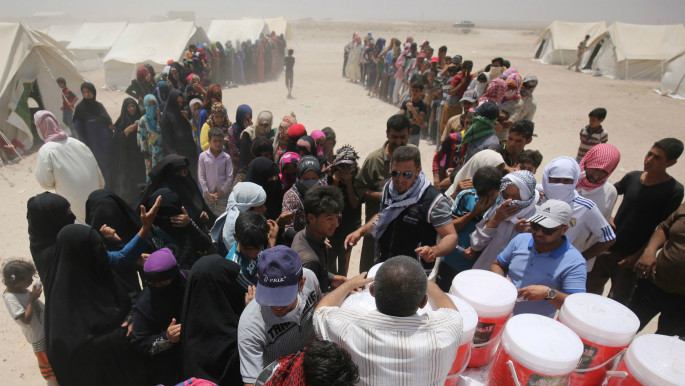Iraq resorts to 'medieval' trenches to protect liberated Fallujah
Iraqi security forces defending the recently-captured city of Fallujah will employ medieval-syle trenches to keep the Islamic State group from returning to the city.
According to AP, the trench will run around the perimiter of the city, and will have only one opening for people to move in and out. At present, Fallujah remains largely empty after residents fled the battle between the IS group and Iraqi government forces, Lt. Gen. Abdul-Wahab al-Saadi, deputy commander of the counterterrorism forces that recaptured the city said.
Speaking to AP in Baghdad, al-Saadi said that the ditch will stretch for roughly 7 miles (11.3 km) and will "protect the city's residents, who have lived through many tragedies, as well as security forces deployed there".
It will be about 40 feet (12.5 meters) wide and 5 feet (1.5 meters) deep. This measure will be accompanied by several modern techniques to protect the city.
All roads will be cut off, except one which will be monitored closely by authorities. Many car bombs in Iraq's capital have been sourced from Fallujah, so this move is hoped to tackle vehicles laden with explosives before they can leave the city.
Details of the 85,000 or so residents who left the city between May and June will also be stored in an electronic database. According to the city's mayor Issa al-Issawi, forgery-proof ID cards will also be issued, along with car-permits for residents.
Workers have already started digging the first four miles of the trench, which runs along the north and northwestern sides of the city.
While the trench may prove effective in keeping IS forces from entering from outside, Fallujah remains a deeply divided city that may still see conflict erupt from within.
 |
|
| Over 80,000 people fled Fallujah between May and June [AFP] |
During IS group's two year grip on the city, several tribal elders from Fallujah pledged alliegance to the militants. Those who did not were killed, forced to flee and had their homes destroyed.
Sectarian divisions within the city - which is predominantly Sunni - have also led to huge mistrust between its residents and Iraq's Shia-led government.
Pro-government forces who captured Fallujah from the IS group were accused by the UN of serious violations, including kidnap, torture and beheadings.
Following the capture of Fallujah, authorities detained around 21,000 of the city's residents on suspicion of being IS members. The majority of those arreseted were released, except for about 2,000 who were kept for further investigations.





 Follow the Middle East's top stories in English at The New Arab on Google News
Follow the Middle East's top stories in English at The New Arab on Google News
![The UAE is widely suspected of arming the RSF militia [Getty]](/sites/default/files/styles/image_330x185/public/2024-11/GettyImages-472529908.jpg?h=69f2b9d0&itok=Yauw3YTG)
![Netanyahu furiously denounced the ICC [Getty]](/sites/default/files/styles/image_330x185/public/2024-11/GettyImages-2169352575.jpg?h=199d8c1f&itok=-vRiruf5)
![Both Hamas and the Palestinian Authority welcomed the ICC arrest warrants [Getty]](/sites/default/files/styles/image_330x185/public/2024-11/GettyImages-2178351173.jpg?h=199d8c1f&itok=TV858iVg)